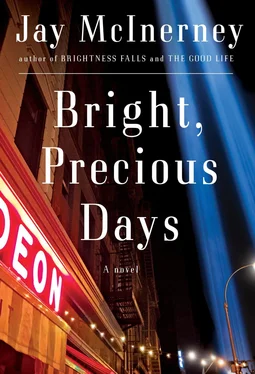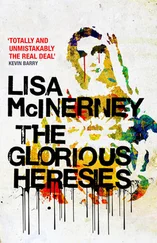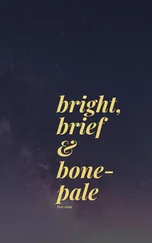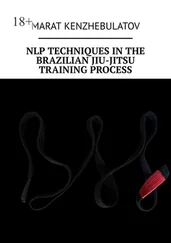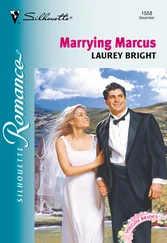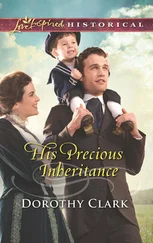“But I’m not sure you can parse out the reasons that neatly,” he added. “Guilt and fear of getting caught can erode your interest — your carnal enthusiasm. It wasn’t lack of interest so much as lack of the kind of overwhelming drive required to surmount the guilt and the fear of getting caught.”
“That’s what I was saying earlier,” Kip said. “Sex no longer rules your life. There was a time you would’ve been all over that. God knows I was. Secretaries and waitresses were my big hobbies then. Why do you think I got divorced twice?”
Russell had, in fact, been unfaithful to Corrine in the past, not often, but more than once. He wasn’t proud of it now, and he just didn’t want to feel that way again. He wasn’t certain whether this meant he was getting wiser, or merely older.
“So who was this?” Kip asked. “Some girl at the office?”
“No, although I’ve made that mistake before.”
Kip looked surprised, and Russell realized that this was the first time he’d ever admitted to any kind of extramarital activity in front of his business partner. Their friendship was relatively new. They’d been acquainted at Brown but had fallen out of touch in the years after both moved to New York. They started socializing five years ago, after a chance encounter at an uptown dinner party, where they discovered that Kip’s son was the same age as Russell’s twins.
They’d both been English majors, but after a year in Paris, failing to write a novel, Kip had joined the training program at First Boston, and later started a hedge fund while maintaining his subscriptions to The New York Review of Books and The Times Literary Supplement. He kept up with contemporary fiction, and Russell was flattered to learn he’d followed his career. Kip confessed he’d always wondered what it would be like if he’d pursued a literary career, and had always watched the alumni review for notes on Russell’s progress. “You know, the road not taken.” Kip’s son hit it off with Jeremy, and Russell shared Kip’s passion for fly-fishing, though he’d never been able to practice it much farther from home than upstate New York before Kip started taking him along on his trips. It had been on the North Platte River in Wyoming that their business partnership had been conceived, though it took them several months to find the appropriate vehicle.
Russell was chafing in his old job, working for a philistine at a once-illustrious publishing house that had been purchased by a French conglomerate. He’d been increasingly unhappy since the change in ownership, and after the events of September 11, he felt the need to make his mark in the world while there was still time, and to do more than other publishers were for the writers he believed in. He’d seen too many talented authors sent naked into the world as the big houses lavished all their hopes and energy on a few flashy titles for which they’d overpaid after ruinous bidding wars. He’d recently attended the funeral of a friend who’d published four serious, well-reviewed novels, whose fifth Russell had been unable to convince his employers to take on, given the disappointing sales of its predecessors. Though it turned out the writer had been treated for depression, Russell never forgave his boss, or himself, when the man committed suicide a year later. And of course there was Jeff….When McCane, Slade went up for sale after old man Slade suffered a stroke, they’d pounced. It had a venerable name and a solid backlist that threw off over a million a year. Kip assembled a small group of investors, putting up half of the money himself, giving Russell 20 percent of the company, with additional equity contingent on performance. And, in 2004, after just two years, they’d turned a small profit. Score one for the Art and Love team.
—
They were summoned to dinner by Matthew Soames, an Englishman in his mid-thirties whose fifth-great-grandfather had been given title to this Bahamian island by King George III. Various agricultural schemes had been tried and abandoned over the generations, until Matthew, after getting kicked out of Oxford, had finally hit on the idea of building a fishing camp on the otherwise-uninhabited island. After his first two visits, and his very first tarpon on a fly rod, Kip had invested in the camp. The accommodations were more spartan than Kip was accustomed to, but the fishing more than compensated, and Matthew’s girlfriend was an excellent cook.
Tonight, Cora started them with stone crab claws. The main course was a very tasty Nassau grouper in a green curry sauce. They talked about fishing and, with an earnestness unique to fishermen and seafarers, about the weather, until Kip sent Matthew to fetch a second bottle of wine.
“So what’s your thinking on this Kohout book?” Kip said.
“An important title, no doubt about it.”
“Well, getting captured by the Taliban or whoever the fuck they are doesn’t seem like such a brilliant achievement in and of itself.”
“No, but Phillip managed to escape, which wasn’t all that easy, and in the meantime he seems to have picked up some interesting intelligence. He claims that bin Laden is in Pakistan.”
“That’s hardly a novel theory.”
“But beyond that it’s a story of triumphing over adversity. What’ll make this different is that he’s a very good writer, and a real writer can make a trip to Food Emporium fascinating.” Russell decided not to mention the recent encounter in Saint Barth’s; if he begrudged his authors’ drug habits and narcissistic behavior, he wouldn’t have much of a list. “I’ve worked with Kohout before — I basically discovered him, so I think that gives me an edge. Plus, a book like this puts us right in the middle of the cultural dialogue.”
“It seems to me our business model is still sound. We cultivate new talent, mostly fiction, buy low, sell foreign rights, leave expensive wannabe blockbusters to the big houses.”
Easy for Kip to say — he had a five-bedroom apartment on Park Avenue. Russell could have said he wanted to be able to send his kids to private school, or buy an apartment, or take the occasional trip to Europe, but instead he said, “Well, yes, but sometimes we might need to be flexible, be willing to assume some risk for a worthwhile project with a big upside.” He realized that he sounded a little stilted trying to speak Kip’s language. “Obviously, if the book goes for three or four million, we’re out, end of story, but maybe we could make a preemptive offer, let’s say seven fifty, and see if we can’t make a deal. I think it’s an important book that could put us in a different league.”
This was not a jaw-dropping number to a man like Kip. For him, McCane, Slade — the repository of Russell’s life’s ambitions — was more or less a hobby, not that he wanted to lose money on it, any more than Russell did. Still, if Russell ever hoped to own a house or leave money to his kids, this was his shot, and that was no small part of what attracted him to the Kohout deal. For most of his life he’d worked for large corporations, in whose profitability he’d had only an indirect share. He’d acquired a few best-sellers over the years, without ever participating in the profits they generated. This had, he realized now, allowed him the luxury of choosing books according to his own tastes and interests, confident that in the long run they’d make money in the aggregate and keep him employed. His books often won prizes and garnered positive reviews, and his employers understood that these bolstered the value of their brands. But now his compensation was tied directly to his performance. After years of collecting a paycheck, he found himself an entrepreneur.
“Well, if you think we can get it for seven fifty. What kind of rights are we talking about?”
Читать дальше
